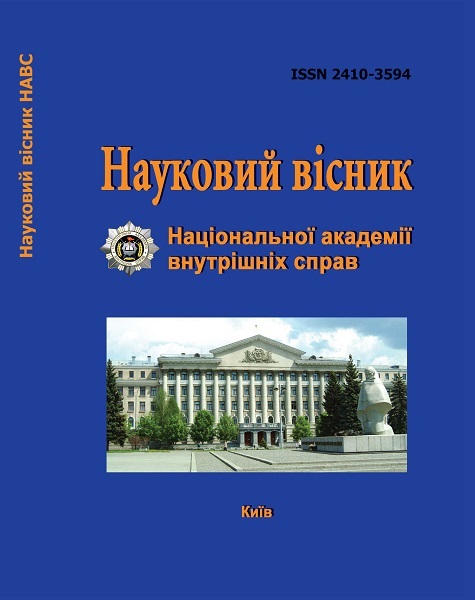In the Search of Unity of Judicial Practice in Fraud Cases
Abstract
In connection with the judicial reform, the Supreme Court is the body, called to ensure the unity and consistency of judicial practice. At the same time, the body of decisions made by the Supreme Court of Ukraine on issues of unequal application of the same rules of the law on criminal liability in similar legal relations cannot but influence law enforcement as well. By disclosing certain controversial aspects of the criminal law characterization of the crime of «fraud», it is decided on how well the Supreme Court works with the relevant criminal law legacy. With the involvement of the achievements of the doctrine and the materials of the court practice, a number of disputed issues of qualification of the crime prescribed by Article 190 of the Criminal Code of Ukraine are considered: the distinction between fraud against theft, robbery and aggravated robbery, in which the guilty person can commit fraud (abuse of trust); determination of the moment of fraud termination as a crime with material structure; the relation of crimes stipulated by Articles 190, 191 of the Criminal Code of Ukraine; the possibility of committing indirect fraud, etc. Among other things, the position is argued about the expediency of a differentiated criminal-law assessment of actions of a person who uses fraud (abuse of trust) to obtain someone elseʼs property allegedly for temporary use. The problems of interpreting the criminal law provision related to fraud, which, in order to ensure the unity of judicial practice, should be the subject of consideration of the joint chamber of the Cassation criminal court of the Supreme Court or the Grand Chamber of the Supreme Court are specified.
Downloads
Abstract views: 254 PDF Downloads: 903
- Authors reserve the right to authorship of their own work and transfer to the magazine the right of the first publication of this work under the terms of the Creative Commons Attribution License, which allows other persons to freely distribute published work with mandatory reference to authors of the original work and the first publication of an article in this magazine.
- Authors have the right to enter into separate additional agreements on non-exclusive dissemination of the work in the form in which it was published in the journal (for example, to post an article in the institution's repository or to publish as part of a monograph), provided that the link to the first publication of the work in this journal is maintained.
- The journal's policy allows and encourages the posting of articles by authors on the Internet (for example, in electronic storehouses of institutions or on personal websites), both before the submission of this manuscript to the editorial office and during its editorial processing, as this contributes to the creation of a productive scientific discussion and positively affects the efficiency and dynamics of citing the published work.




